Natural Sciences
NutriFish Project Registers Significant Achievements
Published
2 years agoon
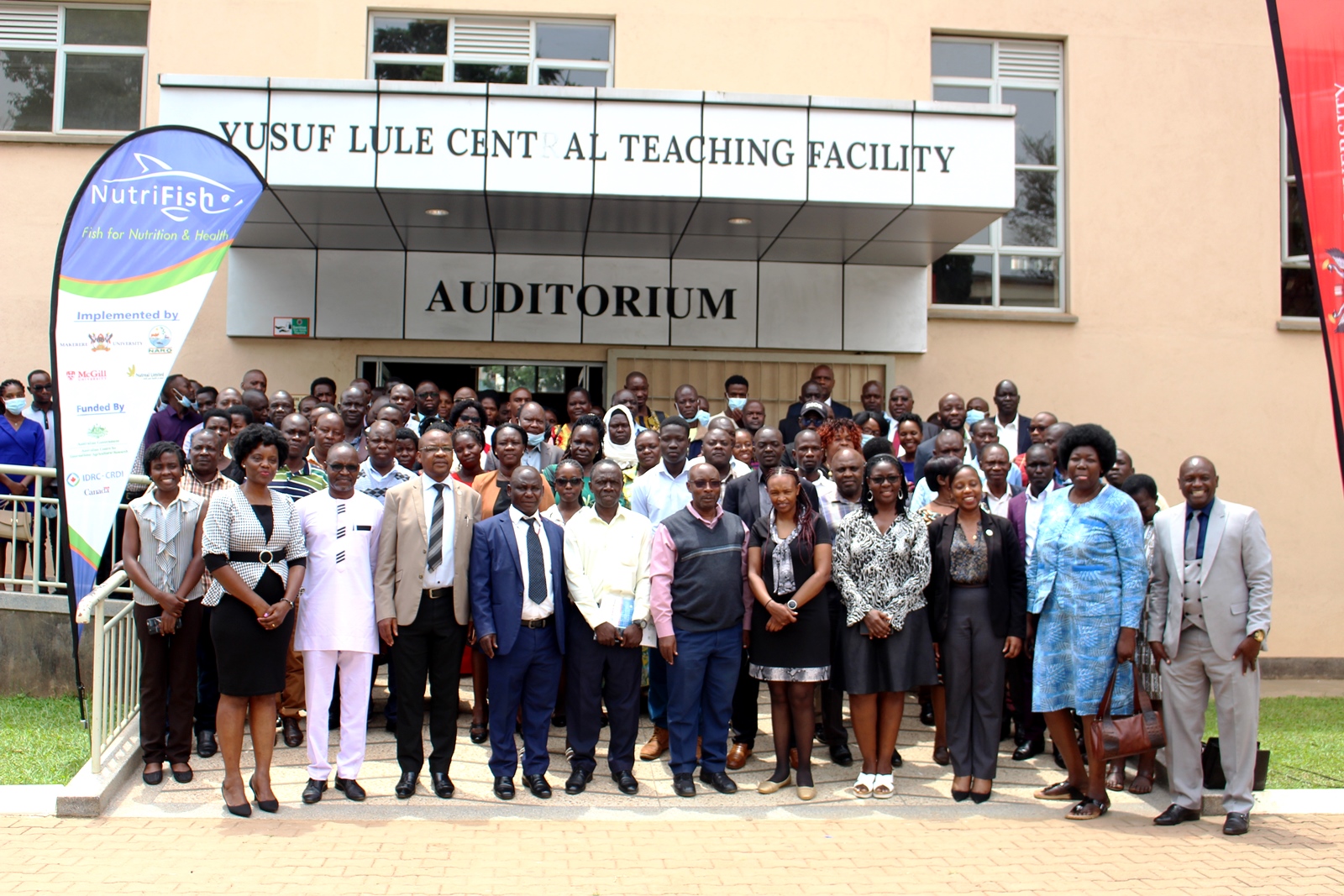
The project has made great strides in reducing malnutrition amongst vulnerable communities in Uganda by improving the acceptability and consumption of small pelagic fishes (SPFs). SPFs are rich in bioavailable micronutrients including iron, zinc, calcium, vitamin A and essential fatty acids (Omega 3, 6).
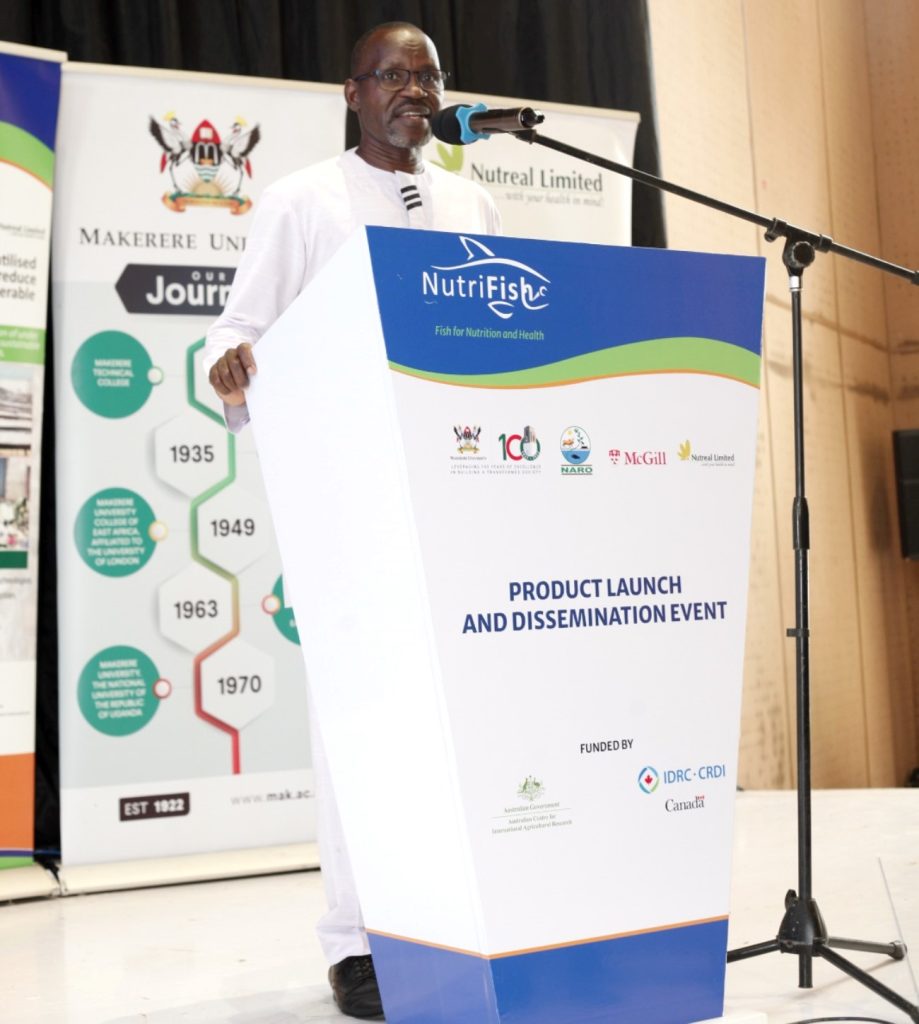
Overview
Malnutrition remains a serious challenge to human health and economic development in Uganda. Due to limited access to micronutrient-rich foods and animal protein, especially fish, 32% of women between 15-49 years are anemic whereas 30% are zinc deficient. 53% of children below five years of age are anemic and 70 % zinc deficient.
The nutritive value of the Small Pelagic Fishes (SPFs) cannot be underlooked in efforts to address the challenge. The SPFs are rich in bioavailable micronutrients including iron, zinc, calcium, vitamin A and essential fatty acids (Omega 3, 6). Besides, they are consumed whole, which enhances their nutritional benefits compared to the large fishes. Most consumers, including vulnerable groups in rural and peri-urban communities can purchase SPFs in small quantities at relatively affordable prices. The SPFs are therefore crucial in improving human nutrition, particularly during the first 1000 days of life (from conception to the second birth day) as they contribute to maternal health and better child development. SPFs are however not being consumed in sufficient quantities due to high levels of adulteration with grit, soil and sand; off-flavors (smelly fish); bitter taste and lack knowledge of the different methods of preparation. Traditionally, the SPFs are regarded as fish for the poor and livestock. Currently per capita fish consumption in Uganda is between 10-12 Kilograms per person per year which is below the internationally recommended amount of 26 kilograms per person per year according to the Food and Agriculture Organization (FAO).
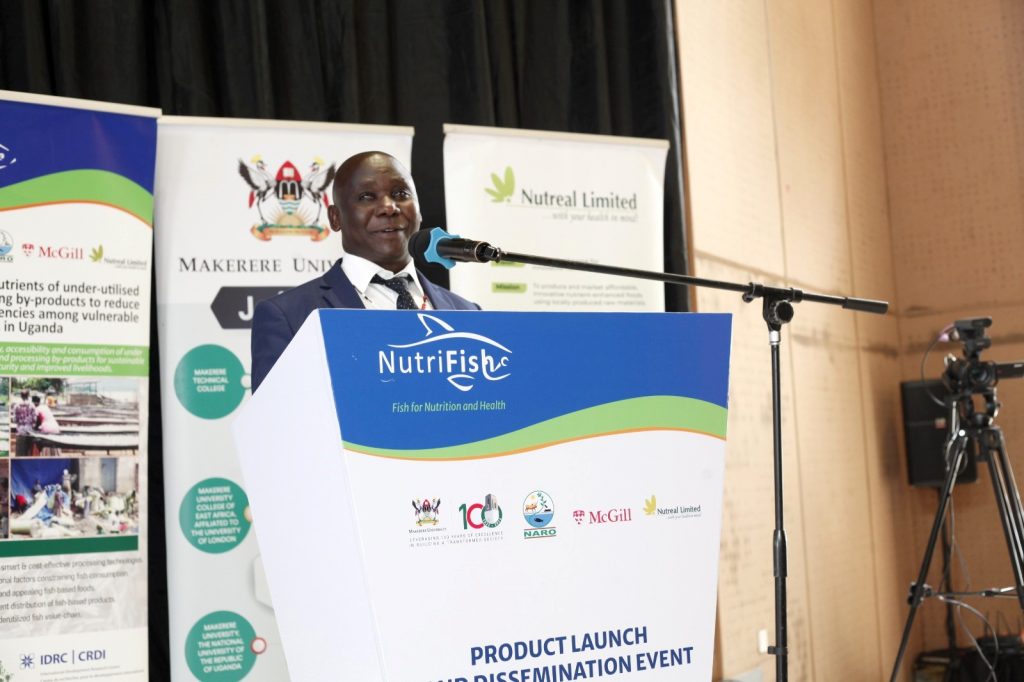
The NutriFish Project and achievements registered
Through a project titled NutriFish, researchers from Makerere University together with their partners from the National Fisheries Resources Research Institute (NaFIRRI) – National Agricultural Research Organization (NARO), NUTREAL Limited and McGill University, Canada in 2019 set out to increase the availability, accessibility and consumption of SPFs for sustainable food and nutrition security and better livelihoods of vulnerable groups in Uganda. Led by Dr Jackson Efitre from the Department of Zoology, Entomology and Fisheries Sciences, Makerere University, and supported by the International Research Development Centre (IDRC) and the Australian Centre for International Agricultural Research (ACIAR) through their joint programme, Cultivate Africa’s Future Fund (CultiAF), the researchers developed five high-value nutritious products (baby food, sauce, maize meal, snacks, and seasoning) using Mukene. A 50g portion of the baby food flour provides more than one-third of a child’s daily protein, iron, zinc, and folic acid requirements. The researchers also developed a Mukene recipe book, containing 16 recipes rich in protein, calcium, zinc, and iron. The cookbook was endorsed by the Minister of State for Fisheries, Hon. Hellen Adoa. Through the NutriFish Project, fishers have been helped to access loans to purchase boats and fish containers which improve hygiene and quality by improving drainage and reducing compaction of fish. Two enterprise fishing groups with over 70 boats have been established and are working together – an approach which ensures more consistent supply and standards, and results in over 3.7 tons of fish caught each month. The research team also developed an application (eCAS system) for tracking fish catches. By September 2022, 8,960 records of catch data had been collected and transmitted through the eCAS system by trained local enumerators. Over 200 stakeholders are using the application, including the Directorate of Fisheries Resources and the Fisheries Protection Unit, which uses the data to help prevent overfishing.
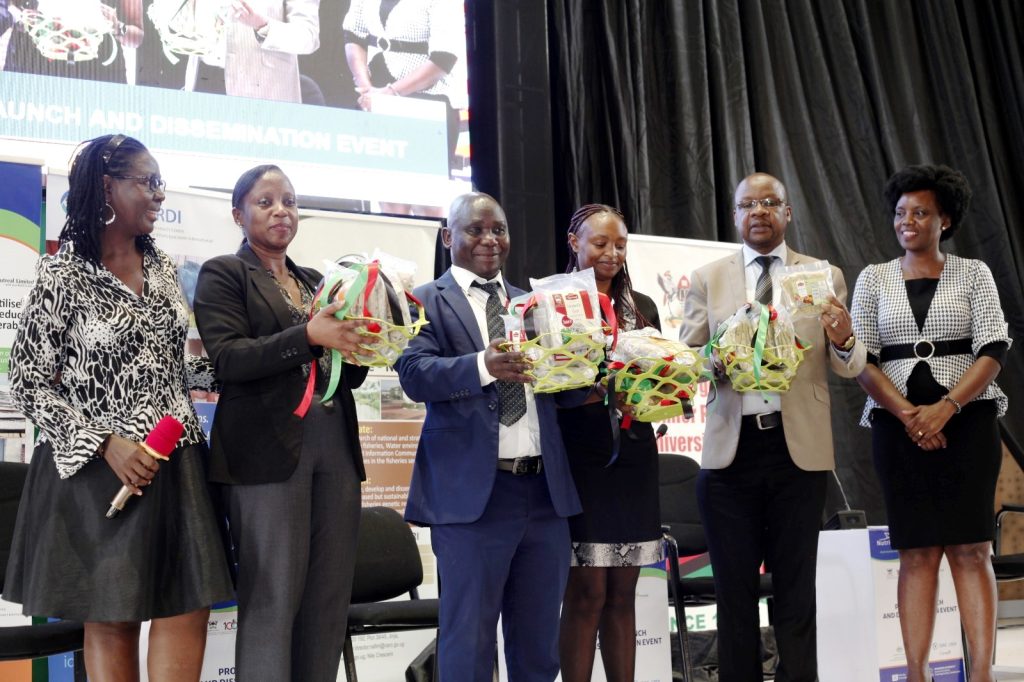
Other achievements registered under the project include the development of solar tent driers – greenhouse-like structures that reduce the risk of contamination – provide clean and efficient storage and drying, especially during the wet season subsequently reducing post-harvest losses. The increased fish quality has doubled fishers’ incomes, from US$1 to US$2/kg, and tripled the shelf-life of dried small fish to almost five months. The driers have also attracted the attention of policymakers, with the Sectoral Committee of Parliament on Agriculture, Animal Industry, and Fisheries specifically recommending their use in April 2022 for improving fish processing. To encourage consumption of Mukene products, NutriFish developed a radio-based awareness campaign. More than 12 million listeners were reached by 29 different ‘spot’ messages in local languages and four 15-minute in-studio conversations – a significant step in tackling long-standing social beliefs that Mukene is food only eaten by poor families or animals. The project conducted awareness training with 326 people (200 women) to reduce gender inequalities. As a result, domestic violence dropped by 30%, the number of women in the fish value chain increased, more couples began to make joint household decisions, and more men carried out household tasks, increasing from 15% to 20%. The project also trained eight Graduate students, who have gained valuable skills and knowledge thus boosting critical human resource needs in the fisheries sector.
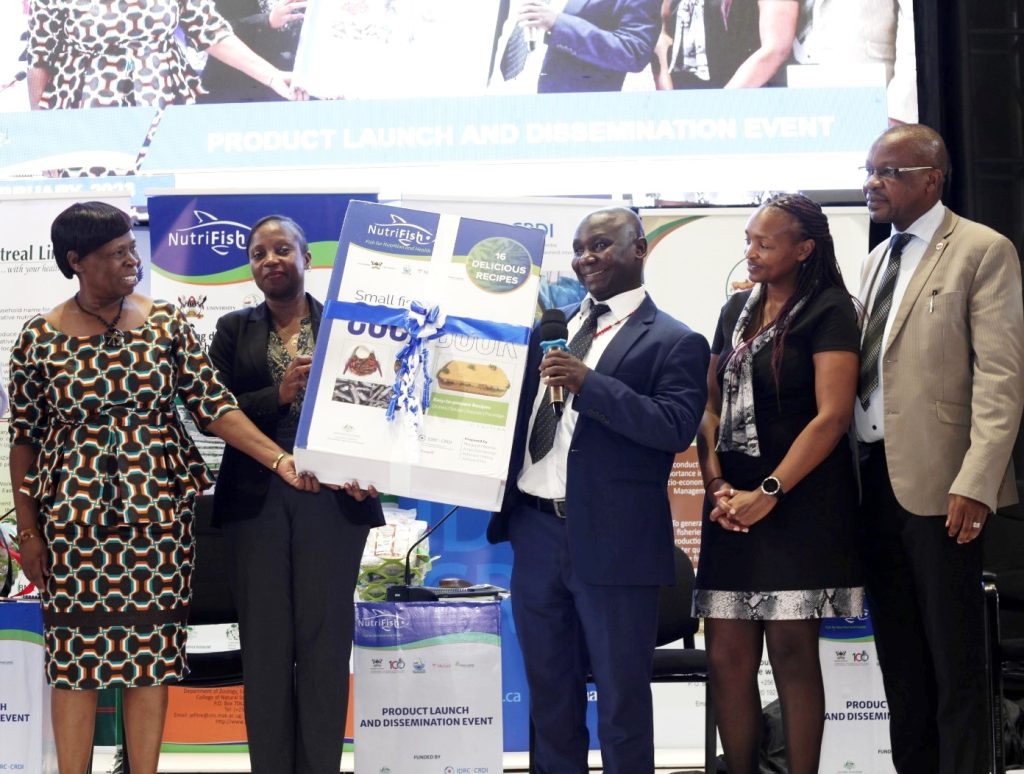
NutriFish Product Launch and Dissemination Event
On 27th February 2023, the College of Natural Sciences (CoNAS), Makerere University in collaboration with the National Fisheries Resources Research Institute (NaFIRRI) and partners – International Development Research Centre (IDRC) held the NutriFish project product launch and dissemination event. The event was presided over by the Minister of State for Fisheries, Hon. Hellen Adoa represented by the Ag. Director, Directorate of Fisheries Resources, Ministry of Agriculture, Animal Industry and Fisheries (MAAIF), Mr. Tom Mukasa Bukenya. It was graced by Ms. Mercy Rurii, Programme Officer at the IDRC of Canada and a number of dignitaries from the agricultural and fisheries sector including the Director General of NARO represented by Ms. Winnie Nkalubo from NaFIRRI.
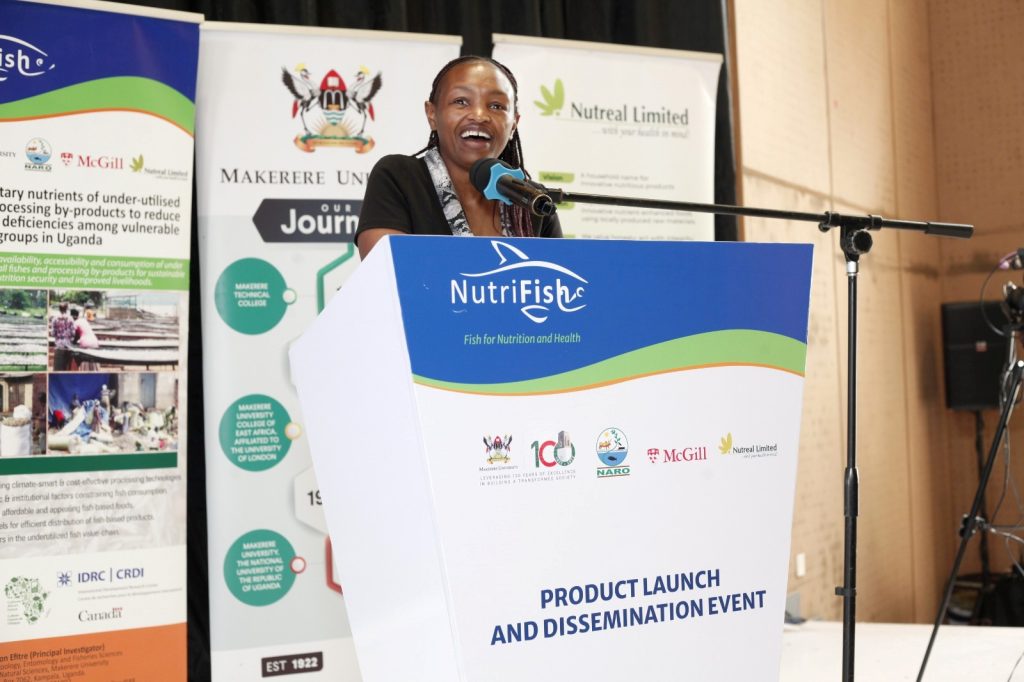
Remarks by the PI
Presenting an overview of the project and achievements registered, the NutriFish Principal Investigator, Dr Jackson Efitre emphasized the importance of SPFs in addressing nutritional deficiencies and improving livelihoods of vulnerable communities.
He appealed for the inclusion of small fishes and fish products into the national nutrition/health interventions including school feeding programs and supplemental feeding in malnutrition units at health facilities. He expressed gratitude to the funders of the project noting that it had greatly transformed livelihoods of vulnerable communities in the country. “Sincere appreciation to our implementing partners NaFIRRI, McGill University and Nutreal Ltd., who worked closely with us to effectively implement the NutriFish project. We also thank the different Government Ministries, Departments, Agencies, the donors, the private sector, and community members – who supported us throughout the project implementation.”
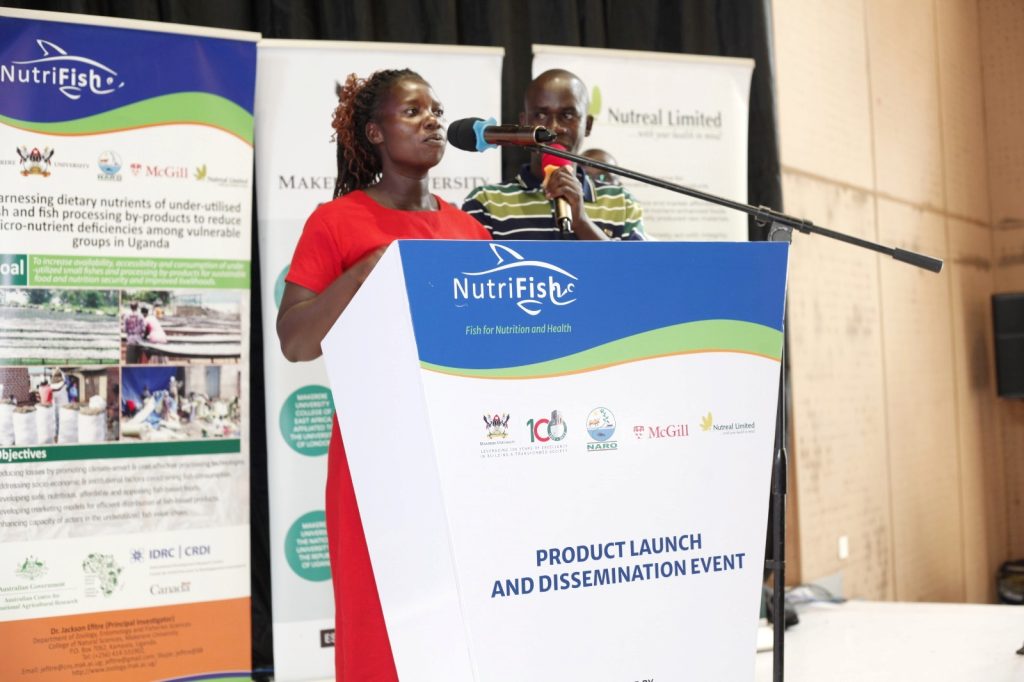
Testimonies by the beneficiaries
Sharing experiences, the beneficiaries appreciated the project team and funders noting that the interventions had improved the quality of their operations subsequently increasing their profits and transforming their livelihoods. “I was born at the lake and I have grown up there but I had never eaten Mukene for several reasons, but mainly due to poor preservation methods. Following the interventions by the NutriFish Project, my attitude towards Mukene changed and I now own a Mukene business which has greatly transformed my life. With the skills acquired from the trainings conducted by NutriFish, we are now able to produce and sell quality Mukene and our profits have increased. Out of the 14 members in my group, 5 of us bought boats and this has increased our income from UGX500,000 to UGX3,000,000 per month per individual,” Mercy Betty, Mukene trader at Ntoroko Fish Landing Site. According to Patrick Chakcon, a fish trader from Dei Landing Site in Pakwach, the solar tent drier has helped improve the quality of their products. “Initially, we relied mainly on open drying which is time wasting and not secure. With the introduction of the solar tent drier, many fish dealers now have time for other activities. We thank the project team and the funders for this intervention. We however appeal for more units because what we have at the moment can only dry 500kgs out of the 5000kgs harvested per day.”
Before the project, Ms. Tereza from Kikondo in Buikwe district was experiencing a lot of challenges and at some point got thoughts of suicide. She is so grateful for the intervention because she now works and can support her family.
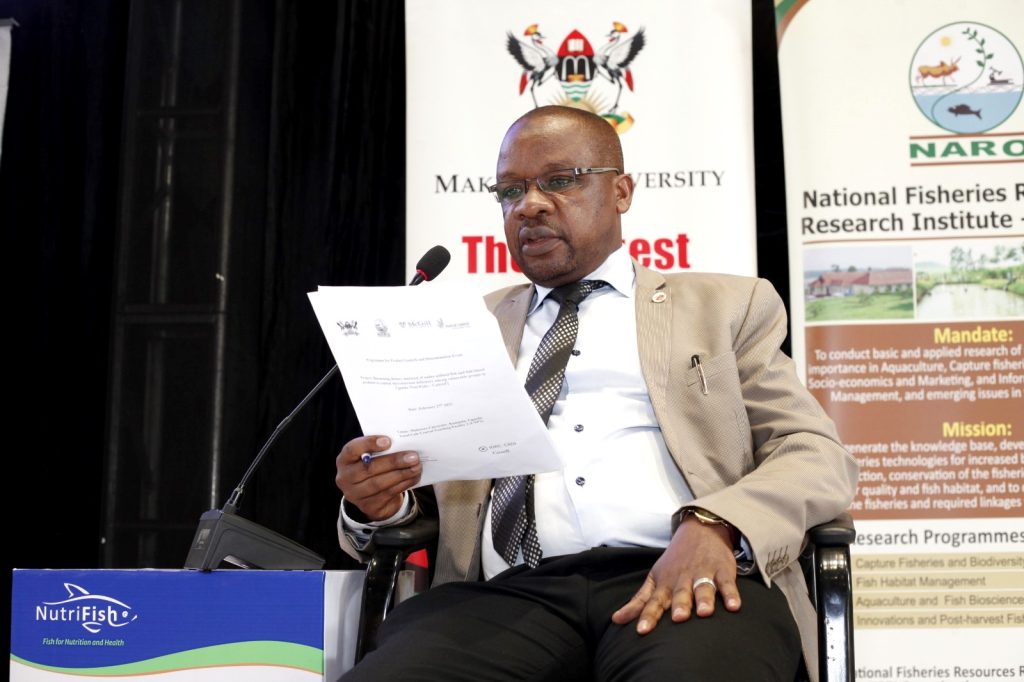
Remarks by the Minister of State for Fisheries
In her address presented by the Ag. Director, Directorate of Fisheries Resources, Ministry of Agriculture, Animal Industry and Fisheries, Mr. Tom Mukasa Bukenya, the Minister of State for Fisheries, Hon. Hellen Adoa commended the project team for the initiative. She also appreciated the funders for supporting the project. Highlighting the value of fish in terms of exports which now stands at approximately USD177 million, the Minister said Government had prioritized fish in the agricultural sector strategic plan as a flagship commodity for investment and development in line with National Development Plan (NDPIII). “Through the Agricultural Sector Strategic Plan, promoting Small Pelagic Fishes is one of the priorities of the Ministry of Agriculture, Animal Industry and Fisheries to address issues of hunger, malnutrition and food security and improve livelihoods of the fishing communities. I’m happy that the project has come up with tangible solutions to deal with some of these challenges including unsustainable harvest and post-harvest losses.” The Ministry implored the project team share the findings widely through various regional bodies.
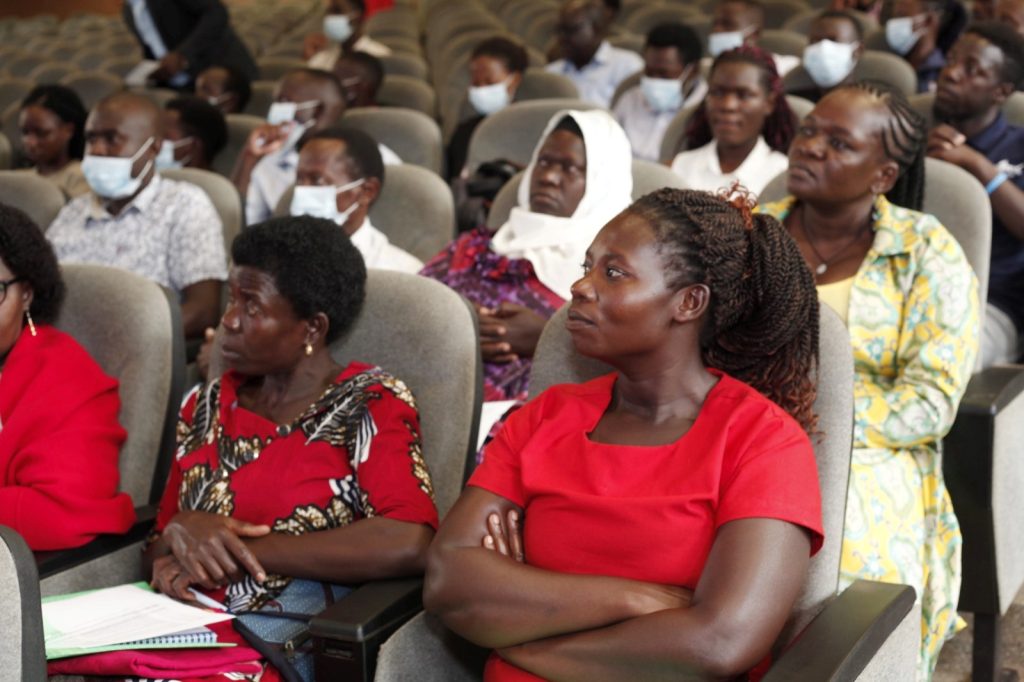
Remarks by the Vice Chancellor
In his speech delivered by the Deputy Principal of CoNAS, Prof. Juma Kasozi, the Vice Chancellor of Makerere University, Prof. Barnabas Nawangwe congratulated the NutriFish Project team upon achieving the set objectives. “On the 27th June 2019, I had the honour of officiating at the launch of the innovative Harnessing dietary nutrients of under-utilized fish and fish processing by-products to reduce micronutrient deficiencies among vulnerable groups in Uganda – NutriFish Project. Today, I am happy to witness the launch of the project innovations and products. NutriFish brought together pillars of knowledge (research and academia) and the Private sector and addressed issues of maternal and child health, nutrition, and poverty reduction through a Public-Private-Partnership approach.” The Vice Chancellor noted that the project activities were in line with Makerere’s current Strategic Plan (2020 -2030) which aims at transforming the University into a research-led institution with a multi-faceted research agenda; and enhanced engagement with industry and the business sector. “As University management, we are happy that we provided conducive working conditions and facilities that enabled NutriFish and her partners to successfully implement project activities. On behalf of Makerere University Management, I extend our appreciation to the funders of the project and the implementing partners.”
Remarks by the IDRC representative
In her remarks, Ms. Mercy Rurii, Programme Officer at the International Development Research Centre of Canada commended NutriFish project as timely intervention that would largely address the challenge of malnutrition in the region. “Malnutrition has negative impact on the cognitive development of children and poses unnecessary burden on the healthcare system. Money that would be spent on other productive sectors goes into healthcare as a result of the many diseases arising from malnutrition, and this becomes a very crippling development challenge. The project team has come up with practical solutions to address this challenge. On behalf of IDRC, we commend the project team for these interventions.”
On behalf of the Principal, CoNAS, Prof. Winston Tumps Ireeta, the Deputy Principal, Prof. Juma Kasozi expressed gratitude to the funders and project partners. He appreciated the project team for the timely initiative that emphasized community engagement in line with Makerere University Strategic Goal 4.
The event featured a panel discussion on National and regional initiatives for addressing fisheries management challenges, moderated by renowned TV talk-show host, Mr. Patrick Kamara. Panelists included Mr. Tom Bukenya, Ag. Director, Directorate of Fisheries Resources, MAAIF; Ms. Joyce Ikwaput Nyeko, Deputy Executive Secretary, Lake Edward and Albert Fisheries and Aquaculture Organization Entebbe; Ms. Nelly Badaru, Gender Expert and Independent Consultant; and Mr. Boaz Musementa from the Office of the Prime Minister. They called for development of quality assurance standards for Mukene products to penetrate the international market. They also called for inclusion of women in decision making processes, strengthening of regional cooperation to minimize trans-boundary conflicts and harmonization of the legal and policy frameworks.
The event also featured an exhibition of several products developed under the NutriFish project.
View proceedings of the event here:
You may like
-


Simplicity, Service & Scholarship: Hallmarks of Professor Livingstone Luboobi’s Legacy
-


EfD-Mak Holds 2nd Advisory Board Meeting: Charts Path for Growth
-


Public University Legal and Accounting Officers Trained on Governance and Compliance
-


Celebrating the Life of Prof. Livingstone Sserwadda Luboobi
-


Fare Thee Well Prof. Luboobi
-


Strengthening Grants Management Through Institutional Collaboration and Capacity Building
Natural Sciences
CoNAS Participates in the 2025 National Science Week Exhibition
Published
1 month agoon
June 17, 2025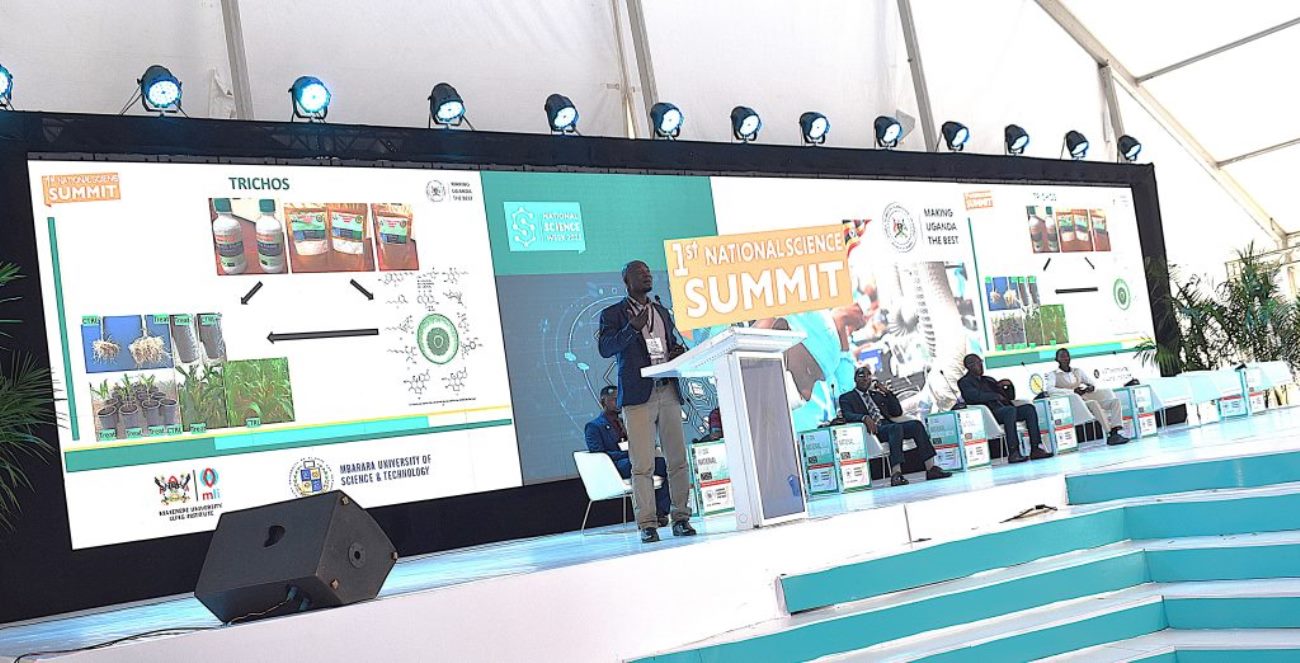
*****15 students from different departments at CoNAS are showcasing their projects.
Over 300 Ugandan innovators, among them students from the College of Natural Sciences (CoNAS) and other science-based colleges at Makerere University are participating in the 2025 National Science Week exhibition, currently underway at the Kololo Independence Grounds.
Launched in 2021, the National Science Week is an annual event organized by the Science, Technology, and Innovation (STI) Secretariat under the Office of the President. The exhibition serves as a strategic platform for showcasing Uganda’s advancements in science, technology, and innovation, both at the national level and on the global stage.
Held under the theme “Made in Uganda: Innovation to Market”, the 2025 edition (running from 15th-20th June) aims to highlight the country’s growing capacity to transform home-grown scientific ideas and research into viable, market-ready products and technologies.
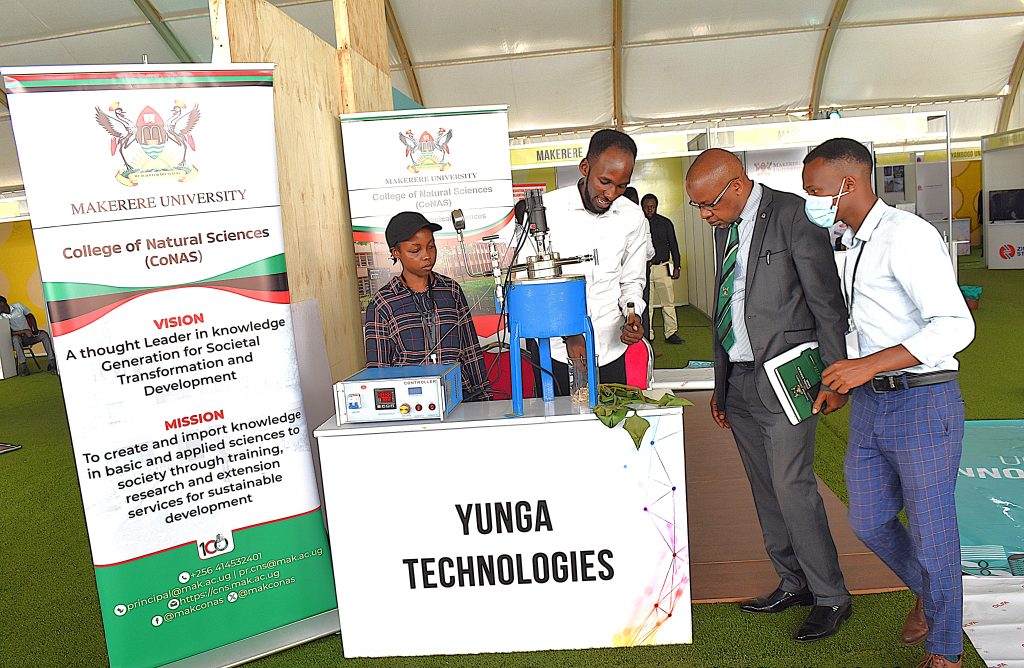
Key highlights from the official launch of the National Science Week
During the official launch held on 13th May 2025, the Minister of Science, Technology, and Innovation, Hon. Dr. Monica Musenero Masanza, outlined several milestones Uganda has achieved over the past year, including:
- The commencement of clinical trials for locally developed therapeutics, marking a significant step in Uganda’s biopharmaceutical sector.
- Notable growth in the electric vehicle (EV) industry, including the deployment of over 5,000 electric motorcycles and 27 electric buses across the country.
- Establishment of critical green infrastructure, including 140 battery swapping stations and more than 30 direct current (DC) fast chargers nationwide.
According to the Minister, these developments demonstrate Uganda’s advancing capabilities in green technology and sustainable mobility solutions.
The Minister also highlighted additional achievements by the STI Secretariat, including the revitalization of Sukulu Phosphates, the launch of both the Deep Tech and Climate Tech summits, and the operationalization of vaccine production lines for both human and animal health. Dr. Musenero expressed gratitude to the Government of Uganda for its continued support, emphasizing its strategic vision of leveraging science, technology, and innovation as a transformative vehicle to position Uganda as a continental leader in deep tech innovation.
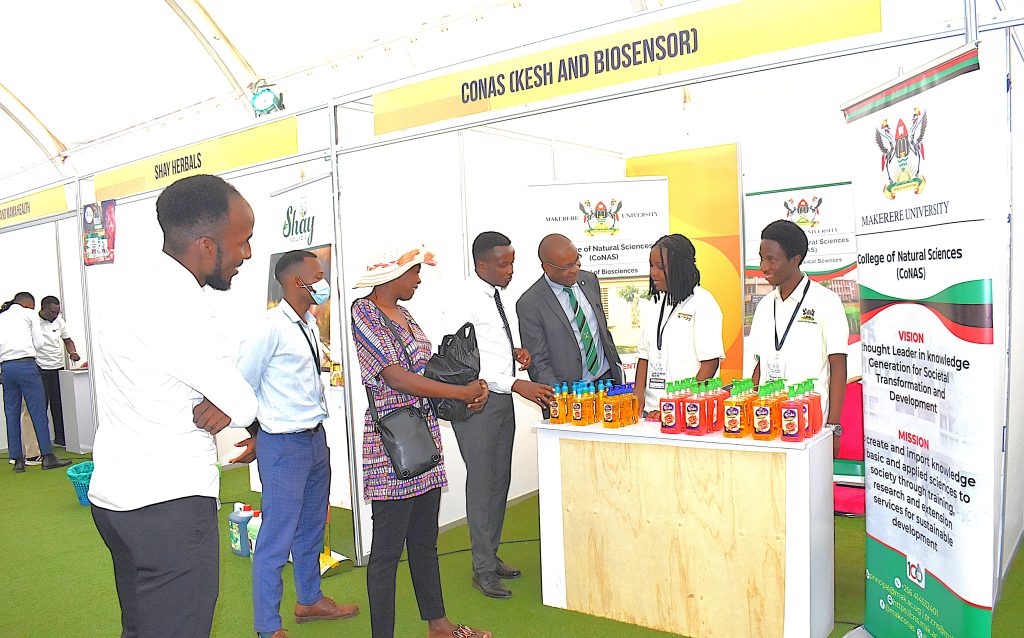
The 2025 National Science Week Activities
The National Science Week is designed to be an interactive experience for all attendees. According to Ms. Cathy Muhumuza from the STI, the exhibition will feature various activities including the official opening by the President of the Republic of Uganda, H.E. Yoweri Kaguta Tibuhaburwa Museveni, expected to take place on Thursday, 19th June 2025. Other activities will include policy dialogues, the Academia Day dedicated to young innovators, and the Investor Day providing a platform for innovators to connect with potential investors.
Additionally, the event will host a “Made in Uganda Supermarket,” allowing visitors to purchase products directly from exhibitors.
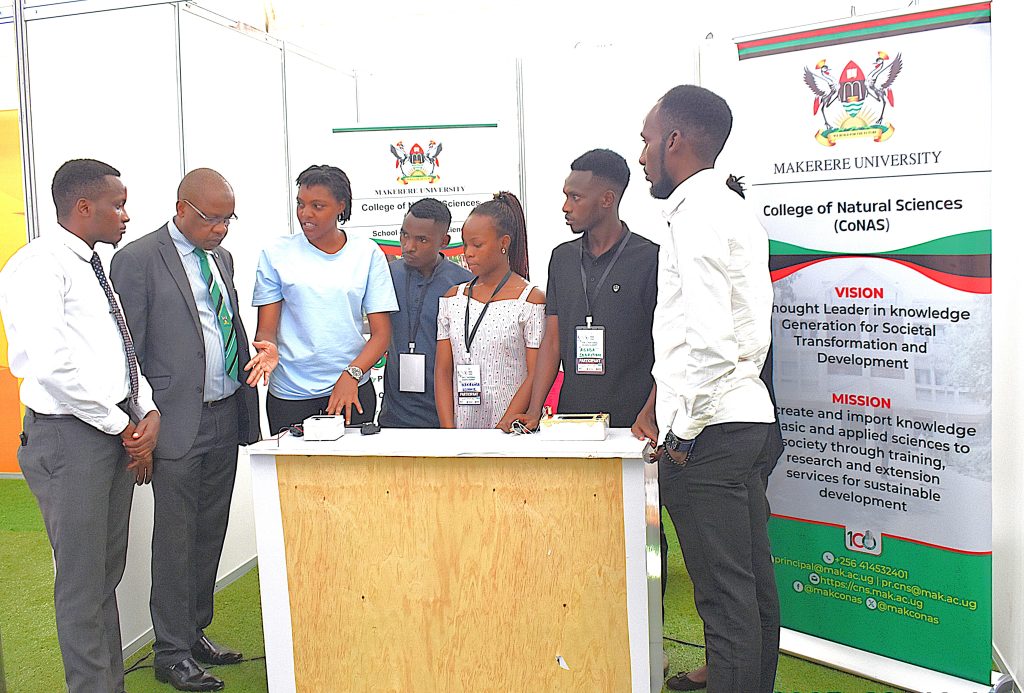
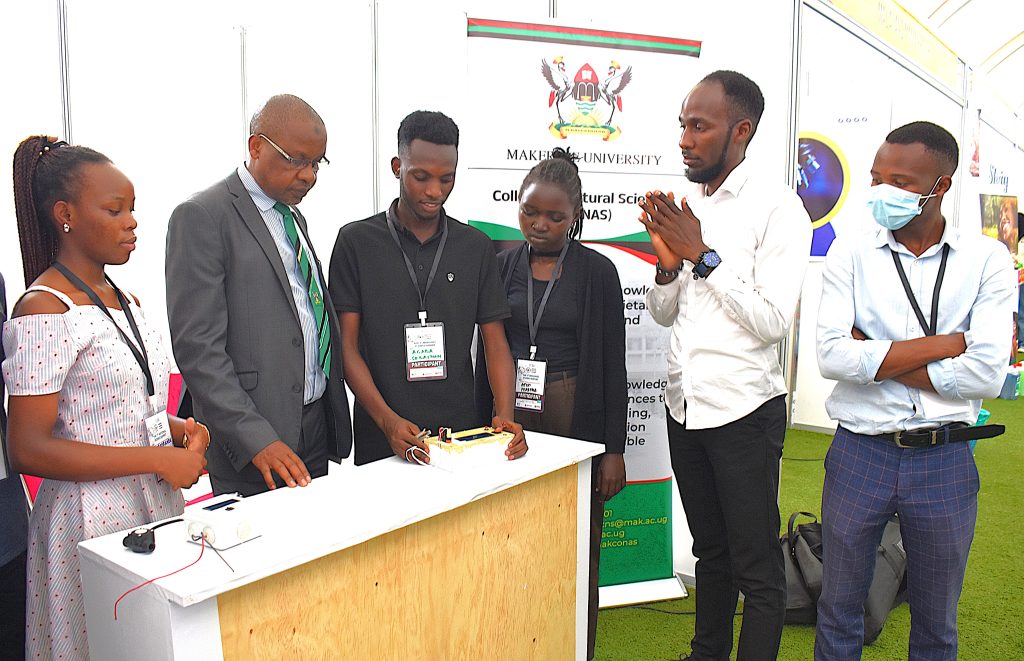
CoNAS Students’ projects
Among the many innovators featured at the exhibition are several talented student teams from CoNAS, presenting a diverse array of projects across scientific disciplines, including biotechnology and green energy. Guided by their lecturers and coordinated by Prof. Juma Kasozi, Deputy Principal of CoNAS, the students are showcasing the following projects:
- Anti-fungal and Anti-bacterial Gel Research Project
Team Leader: Mwebaze Bruce
Team Members: Atim Martha, Sebastian Jordan
This project explores the development of a topical gel with both anti-fungal and anti-bacterial properties, aimed at improving public health outcomes in communities with limited access to conventional treatments. - Minoxidil Production for Hair Regrowth
Team Leader: Keinembabazi Melissa
Team Members: Hashima Nanyiri, Nkamusiima Andrew
Focused on producing affordable, locally made Minoxidil, this project aims to provide a cost-effective solution for treating hair loss. - Infrared Biosensor for Aflatoxin Detection
Team Leader: Rubeihayo Randolp
Team Members: Namuleme Martha, Wabitereza Teddy
This innovation utilizes spectrophotometry to develop an infrared biosensor capable of detecting harmful aflatoxins in food, contributing to food safety and public health. - Biofuel Production from Water Hyacinth
Team Leader: Bill Garvin
Team Members: Kalanguka Patience Pearl, Nuwagaba Victor
The project converts invasive water hyacinth into sustainable biofuels using hydrothermal liquefaction, offering an environmentally friendly alternative energy source. - Automobile Fuel Gauge Detector
Team Leader: Ayebare Sam
Team Members: Achieng Rosemary, Nakirinda Winnie
This project involves the development of a reliable fuel gauge detector to improve vehicle fuel management and efficiency.
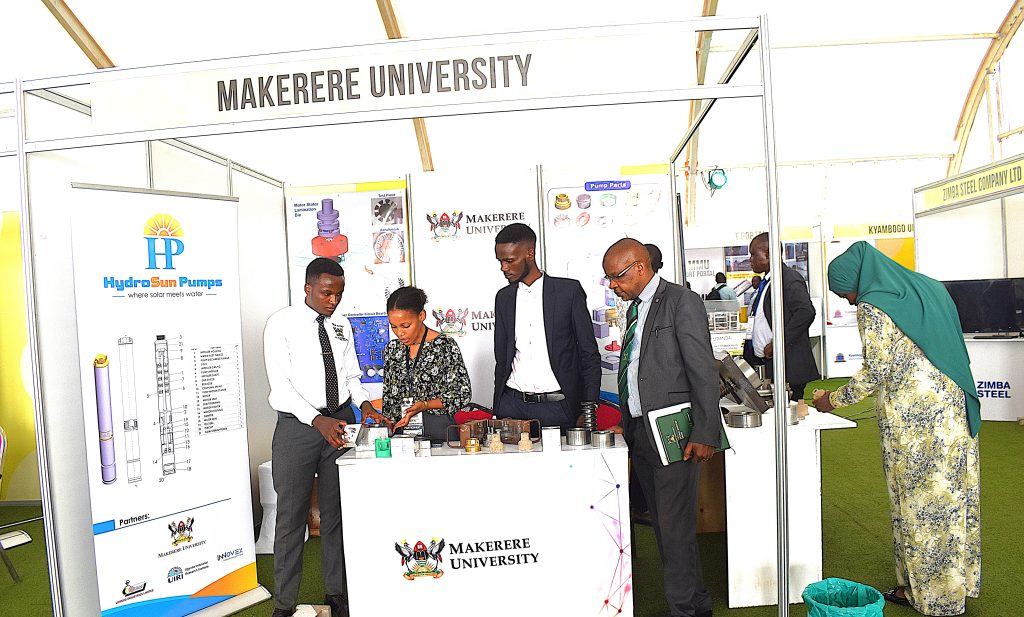
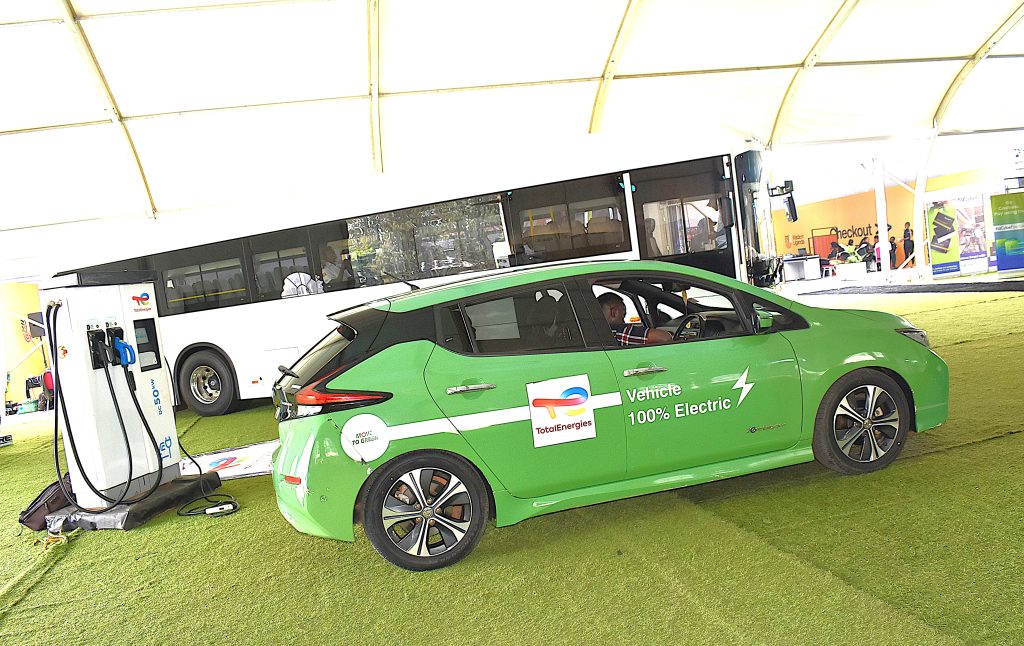
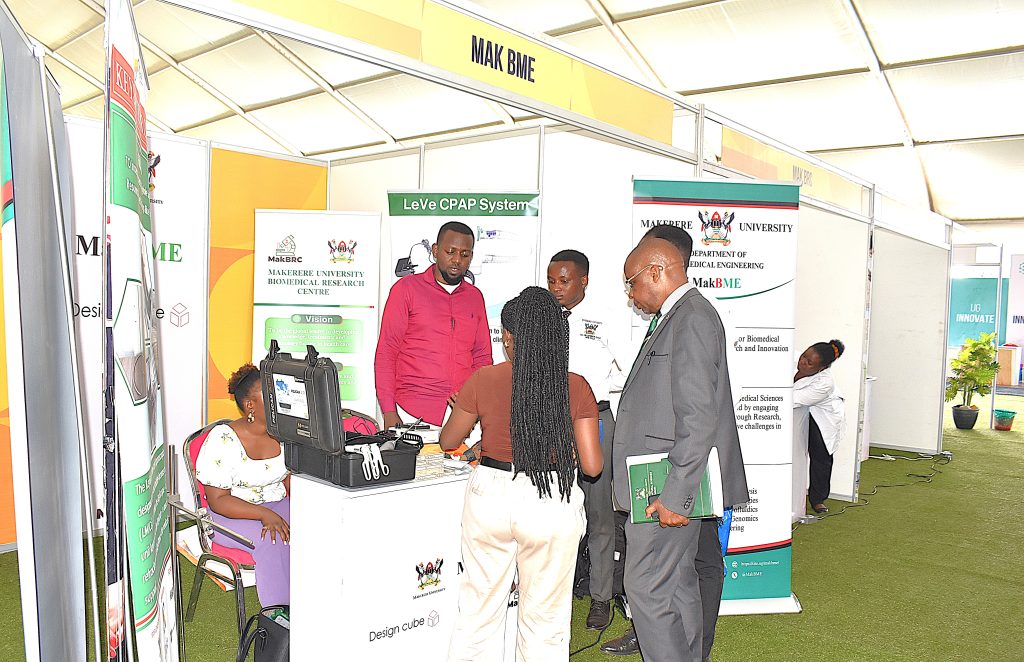
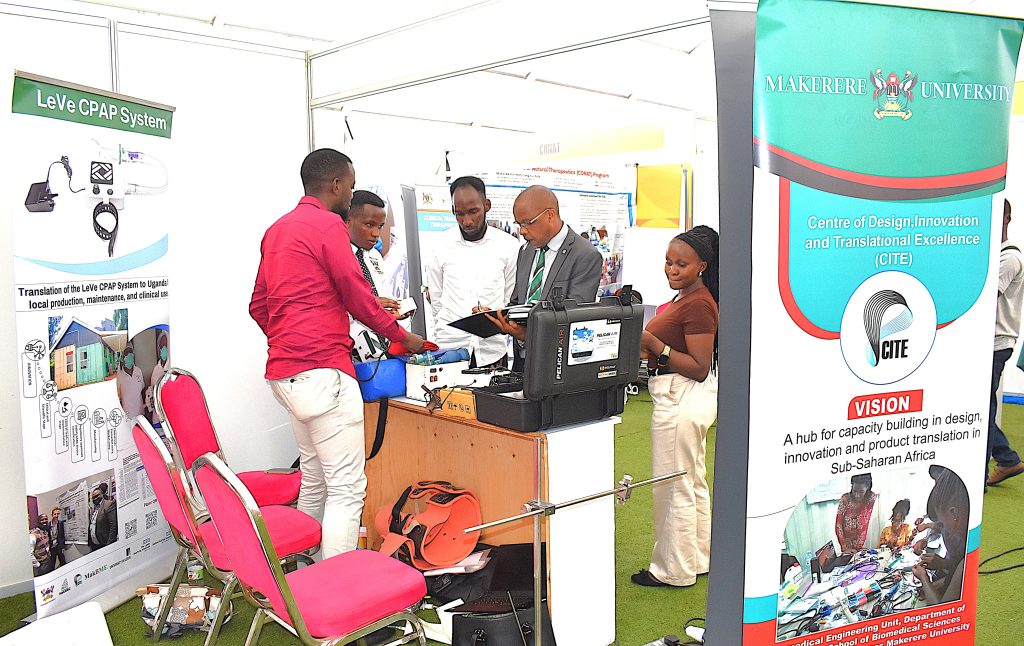
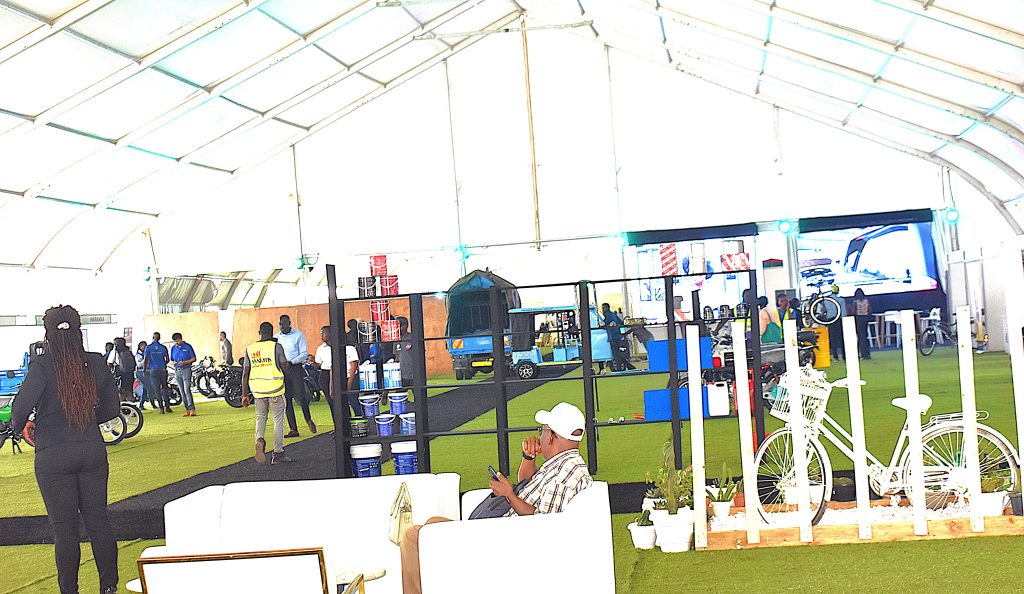
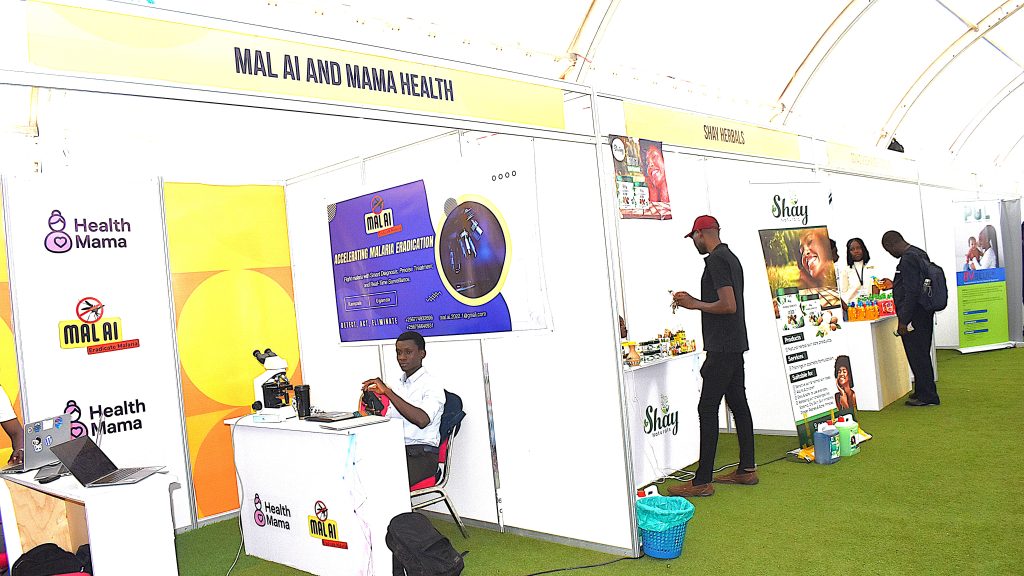
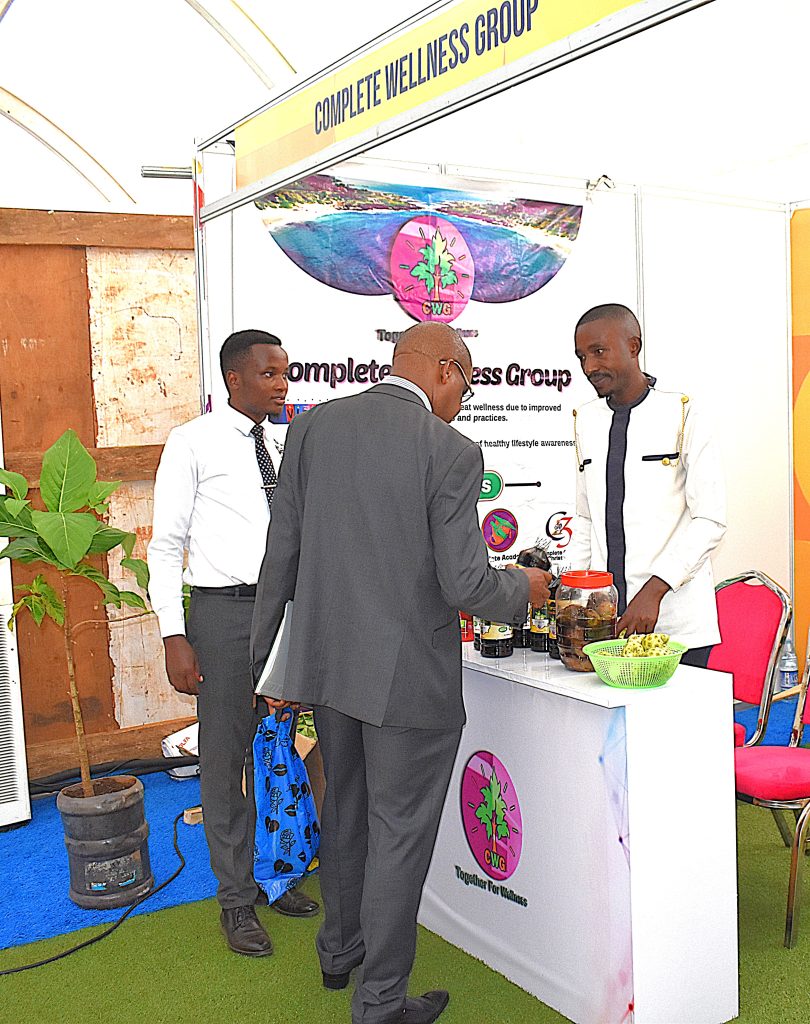
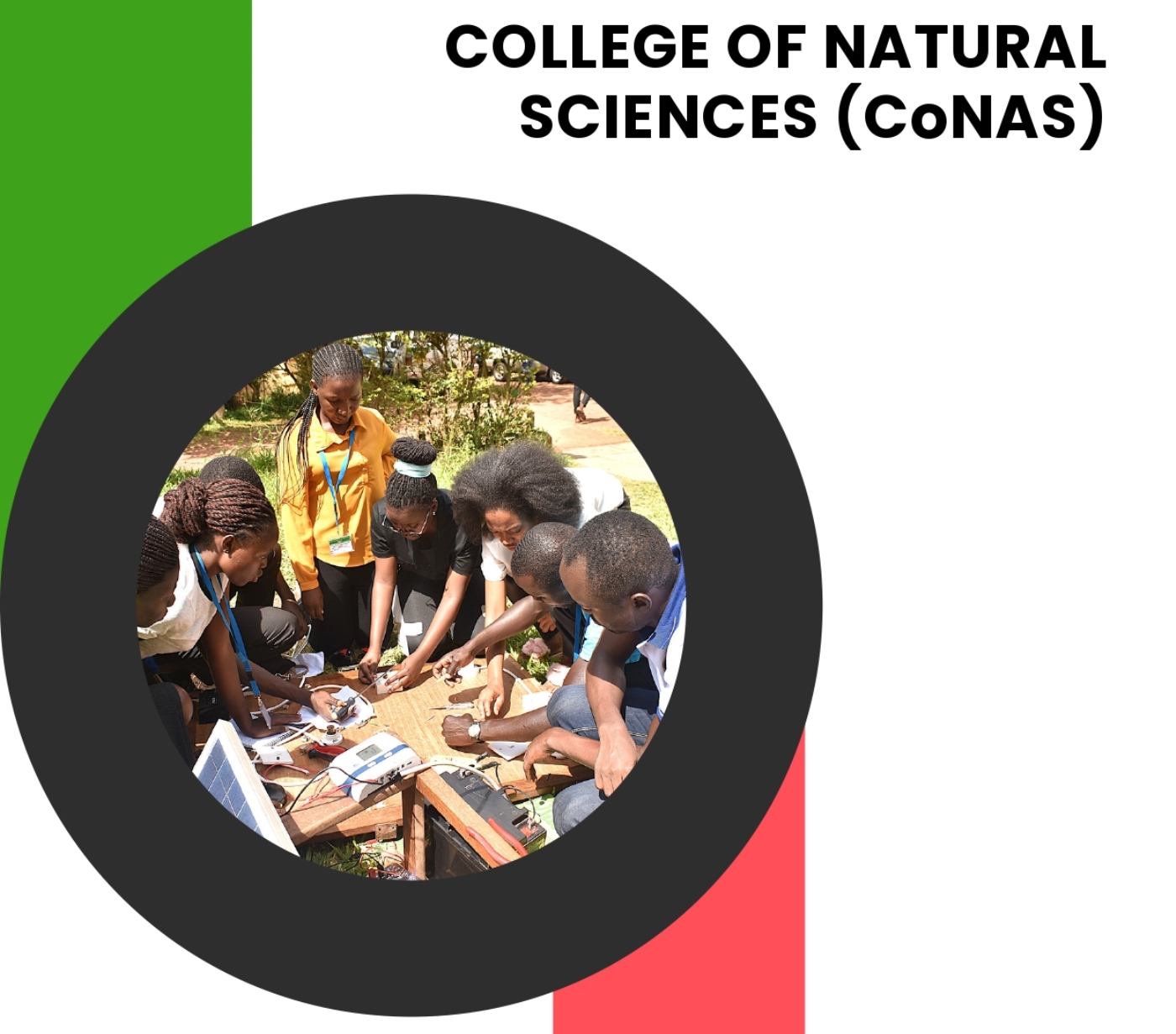
The College of Natural Sciences (CoNAS) is one of the 9 constituent colleges of Makerere University, dedicated to advancing scientific knowledge and education in Uganda.
Comprising two schools and seven departments, CoNAS offers cutting-edge research and academic programs across diverse fields, including chemistry, physics, mathematics, and biological sciences.
The College is committed to nurturing innovative thinkers and leaders who can tackle the complex challenges of today’s world through scientific exploration and discovery. With a long-standing tradition of academic excellence, CoNAS plays a central role in shaping Uganda’s scientific and technological future. It fosters a culture of critical thinking, problem-solving, and sustainable development. The College’s distinguished faculty, state-of-the-art laboratories, and collaborative research initiatives continue to inspire and develop world-class professionals who make significant contributions to both national and global progress.
This edition of the report highlights the activities and achievements of 2024, aligned with the University’s strategic focus on Innovative Teaching and Learning, Research, Innovations and Technology Transfer, and Strategic Engagement and Partnerships.
Natural Sciences
Preparing Graduates for Life after University: CoNAS Launches Terminal Seminar for Final Year Students
Published
3 months agoon
April 24, 2025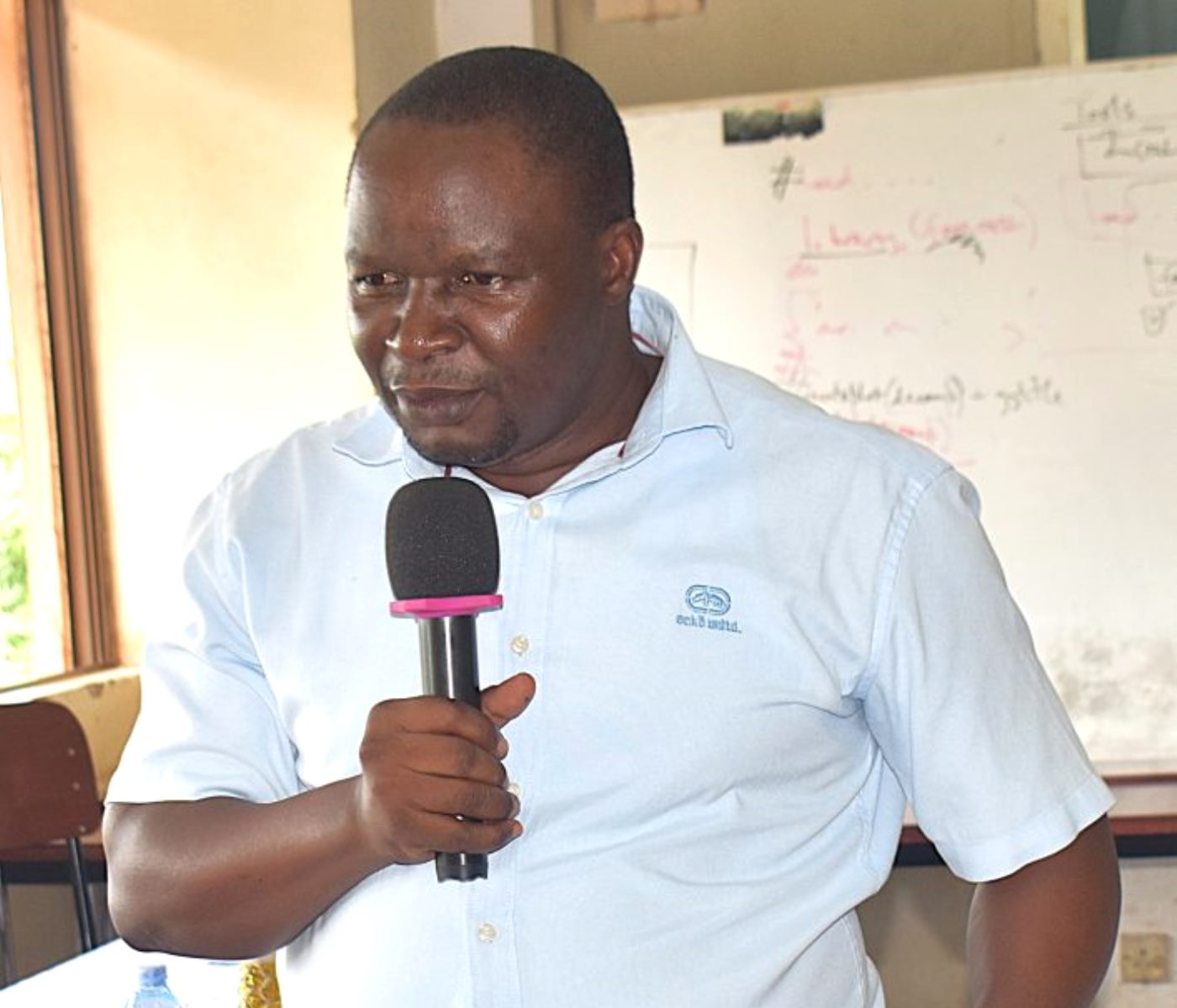
Relevance of the seminar
Transitioning from university life to the professional world can be a daunting experience for many graduates. This challenge is particularly pronounced in Uganda, the broader East African region, and across Africa, where many university leavers find themselves ill-equipped to face the realities of life after school. Issues such as limited career guidance, lack of personal development resources, and insufficient awareness of societal expectations leave many graduates unprepared for what lies ahead.
According to data from the Uganda Bureau of Statistics (UBOS), the youth unemployment rate in the country stands at approximately 13.3%. Each year, over 400,000 graduates join the job market, all vying for a mere 9,000 available formal employment opportunities. This staggering imbalance creates a climate of intense competition, often resulting in widespread disillusionment, anxiety, and in severe cases, depression – largely due to the absence of structured transition programmes to support young people during this critical phase of life.
While some graduates manage to find employment, launch entrepreneurial ventures, or pursue further academic study, many others struggle with prolonged unemployment or underemployment. This vulnerable group is at risk of turning to detrimental coping mechanisms such as substance abuse, criminal activity, or social withdrawal. One of the root causes of this unpreparedness is the lack of mentorship and real-world guidance in key areas such as workplace conduct, professional ethics, entrepreneurship, leadership, and personal financial management.
In response to this pressing need, the College of Natural Sciences (CoNAS) at Makerere University, through its School of Biosciences, has launched an innovative initiative – the Terminal Seminar/Symposium for Final-Year Students. Spearheaded by Heads of Departments within the School, the seminar is designed to bridge the gap between academic knowledge and the realities of post-university life by equipping students with essential life and career skills.
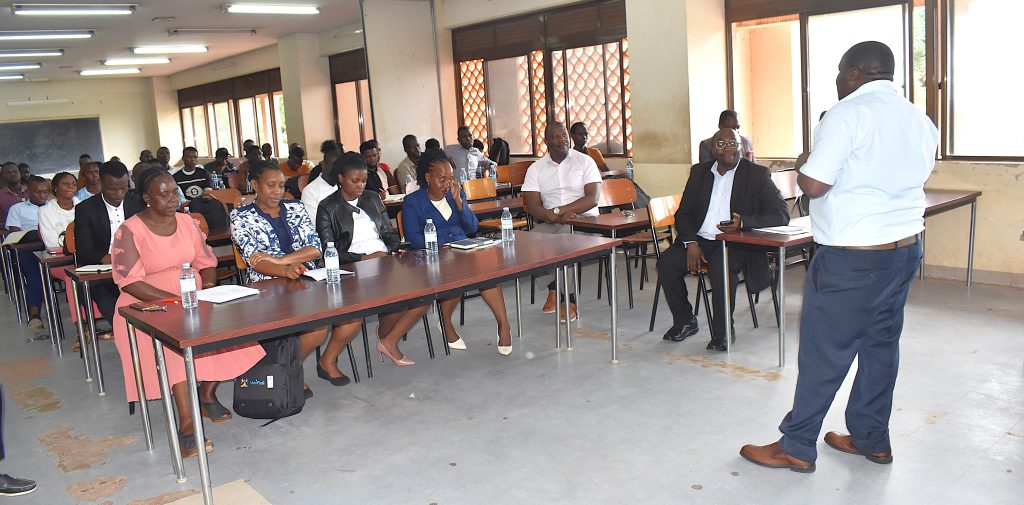
Objectives of the Terminal Seminar
The seminar aims to:
- Impart practical knowledge on workplace ethics, professional behaviour, and employability.
- Cultivate entrepreneurial thinking and leadership skills, enabling students to create their own opportunities.
- Provide strategies for coping with unemployment, social pressure, and the transition period.
- Raise awareness about mental health and equip students with tools to manage transition-related stress.
- Offer insights into navigating employment in public and private sectors, non-governmental organizations (NGOs), and the global job market.
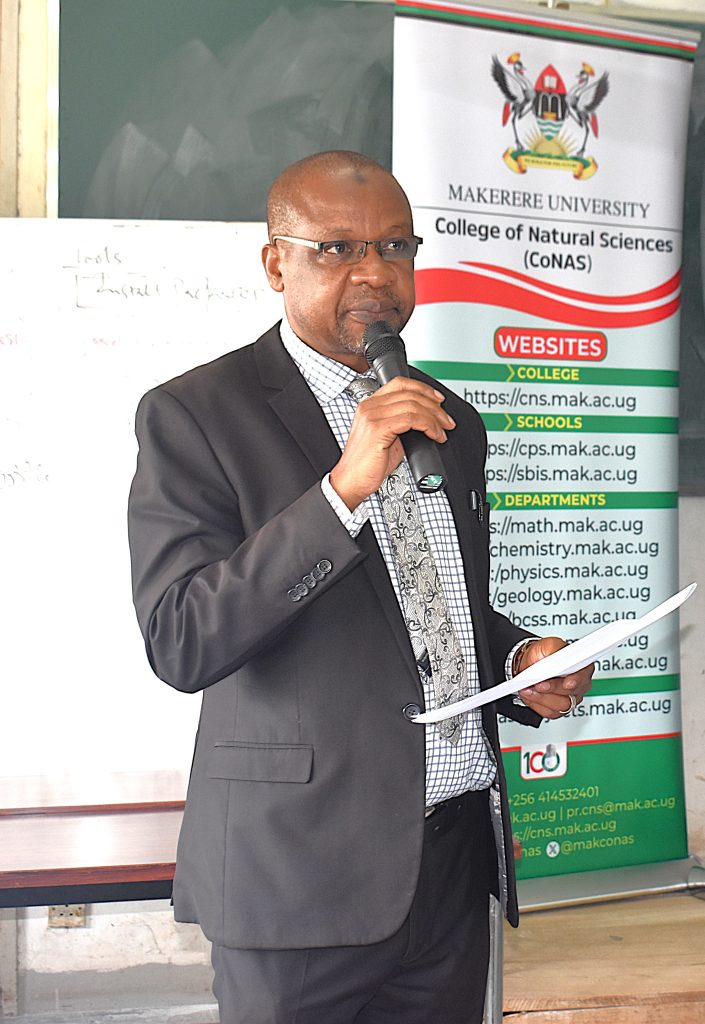
Expected Outcomes
By the end of the programme, students are expected to:
- Gain a broader awareness of career and self-employment opportunities.
- Develop realistic expectations about the challenges and opportunities post-university.
- Experience reduced levels of frustration and vulnerability to harmful behaviours.
- Build connections and networks with industry professionals and mentors.
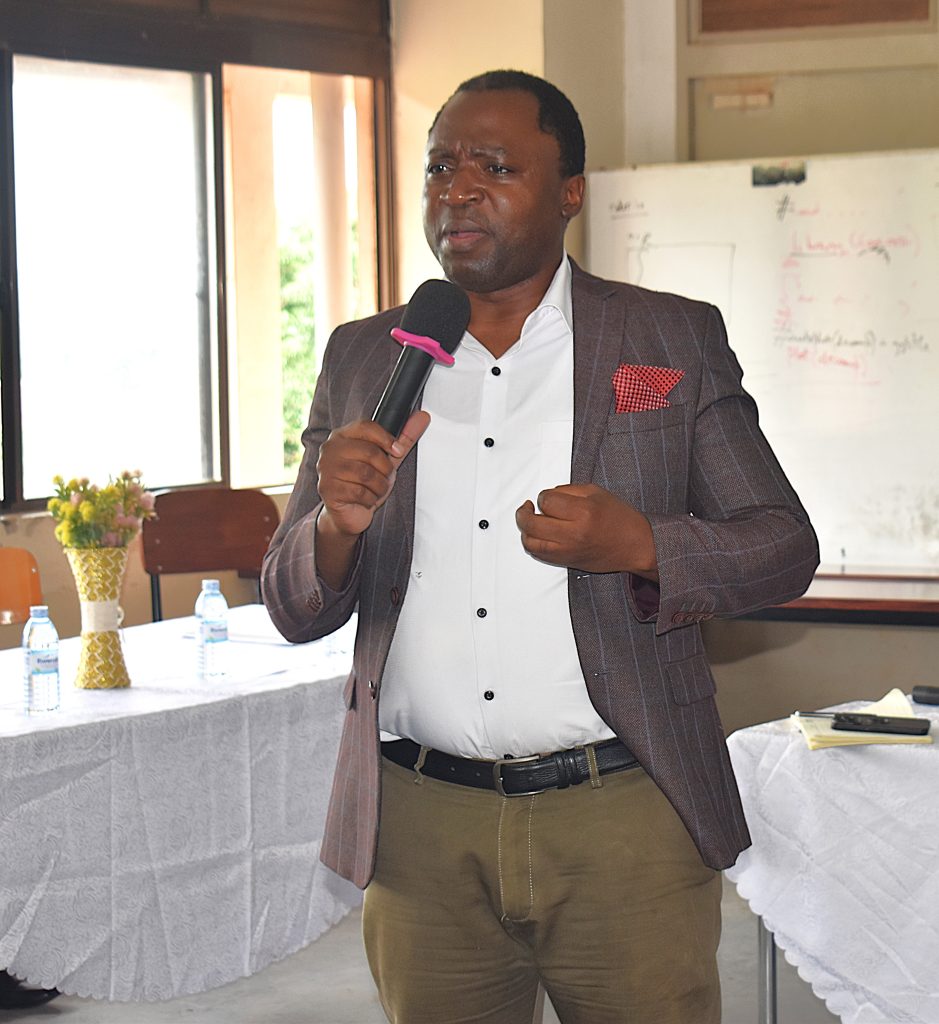
2025 Terminal Seminar Event Highlights
On 23rd April 2025, CoNAS held its flagship Terminal Seminar for Final Year students set to complete their studies in June 2025. The seminar was coordinated by Dr. Godfrey Kawooya Kubiriza, Head, Department of Zoology, Entomology, and Fisheries Sciences, with support from Dr. Barbra Nerima and Dr. Joel Isanga, both faculty members from the Department of Biochemistry and Systems Biology.
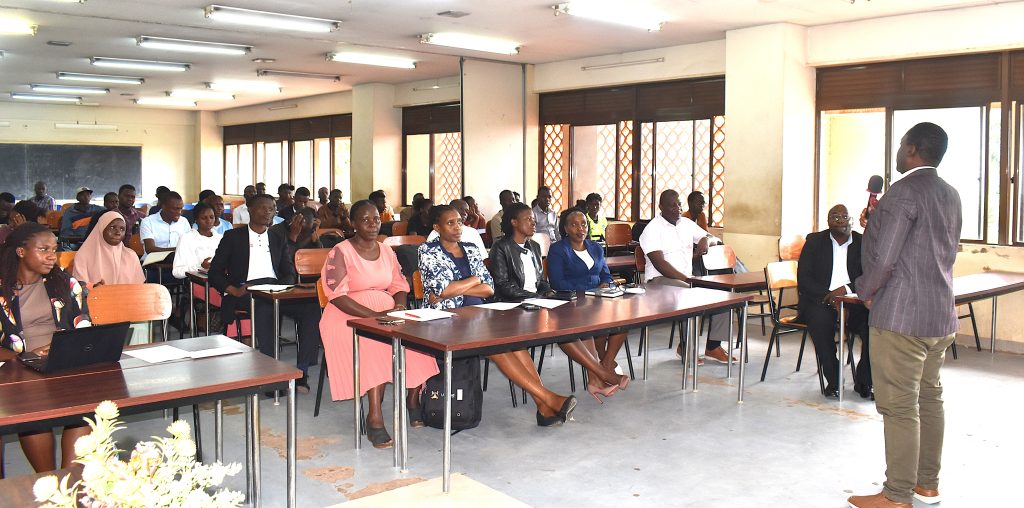
The event featured a series of empowering sessions, designed to help students navigate the transition from academic life to the professional world. Key topics included career planning, workplace ethics, entrepreneurship, and mental well-being.
A line-up of seasoned professionals and motivational speakers – including Mr. John Walugembe, Executive Director of the Federation of Small and Medium Sized Enterprises Uganda, and Dr. Catherine Mbidde, Ag Director, Makerere University Innovations Pod (UniPod), also Lecturer at the School of Business at CoBAMS, shared their personal journeys, professional insights, and practical advice for thriving beyond the university walls. Other Speakers included Dr. Alex Behakanira from the Department of Mathematics, Makerere University; Mr. Henry Nsubuga, Manager, Counselling and Guidance Centre, Makerere University; Mr. Maurice Ssebisubi, Senior Programme Officer (Fisheries and Environment) at the Embassy of Iceland; and Ms. Sylvia Kajubi, Deputy Principal at the Insurance Training College of Uganda.
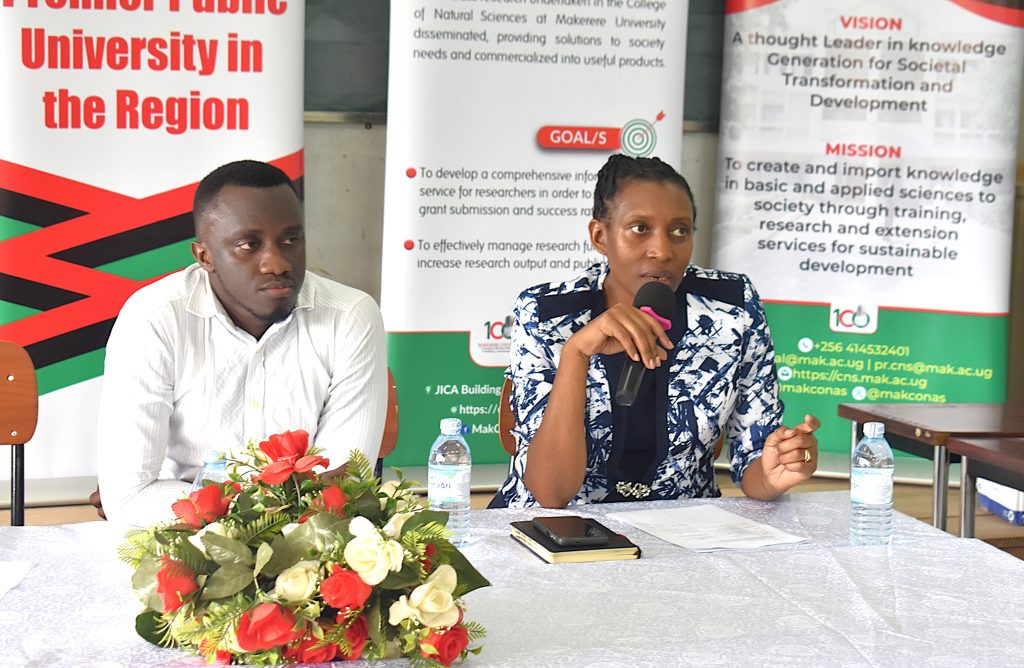
Sharing his personal journey, Mr. John Walugembe offered valuable insights to students, emphasizing the critical importance of time management in shaping a successful career. He encouraged them to cultivate patience, resilience, and integrity as they transition from academic life into the professional world.
Mr. Walugembe also urged the students to maintain an open mind when approaching the job market. “You should not confine yourselves to roles within your academic fields. Remain open to exploring a wide range of opportunities that may arise. You need to approach the job market with flexibility,” he advised.
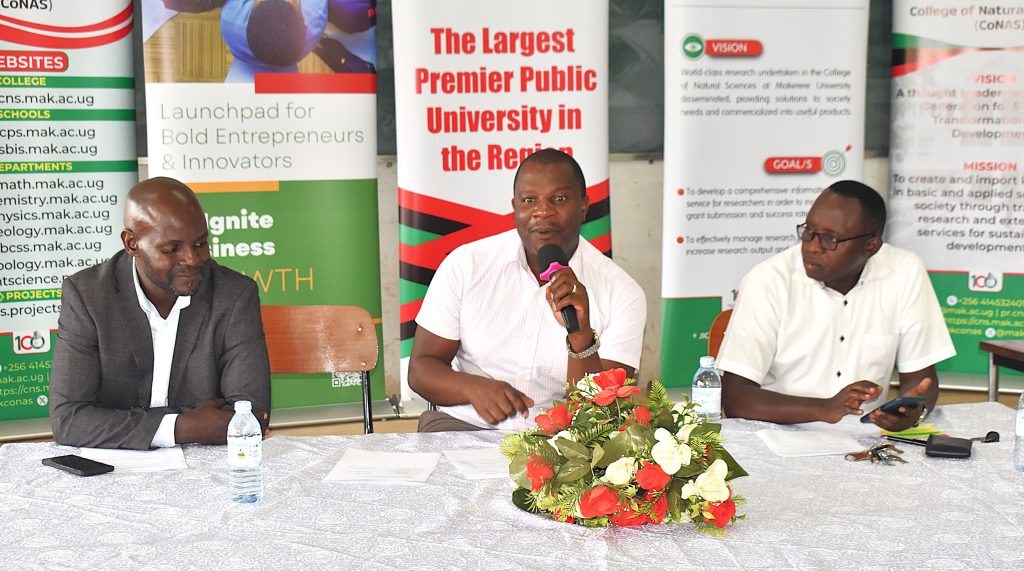
In addition, he highlighted the dual significance of academic excellence and strong professional networks, noting that good grades can open doors, but relationships and connections often determine how far one can go in their career journey. “The best way to build networks is to improve your value,” he advised.
Addressing the students on how to leverage the digital landscape to advance their careers, Dr. Catherine Mbidde emphasized the transformative potential of digital tools in shaping future opportunities. She, however, expressed concern over the growing trend of digital tool misuse – platforms that could otherwise be harnessed to explore career paths and unlock job prospects.
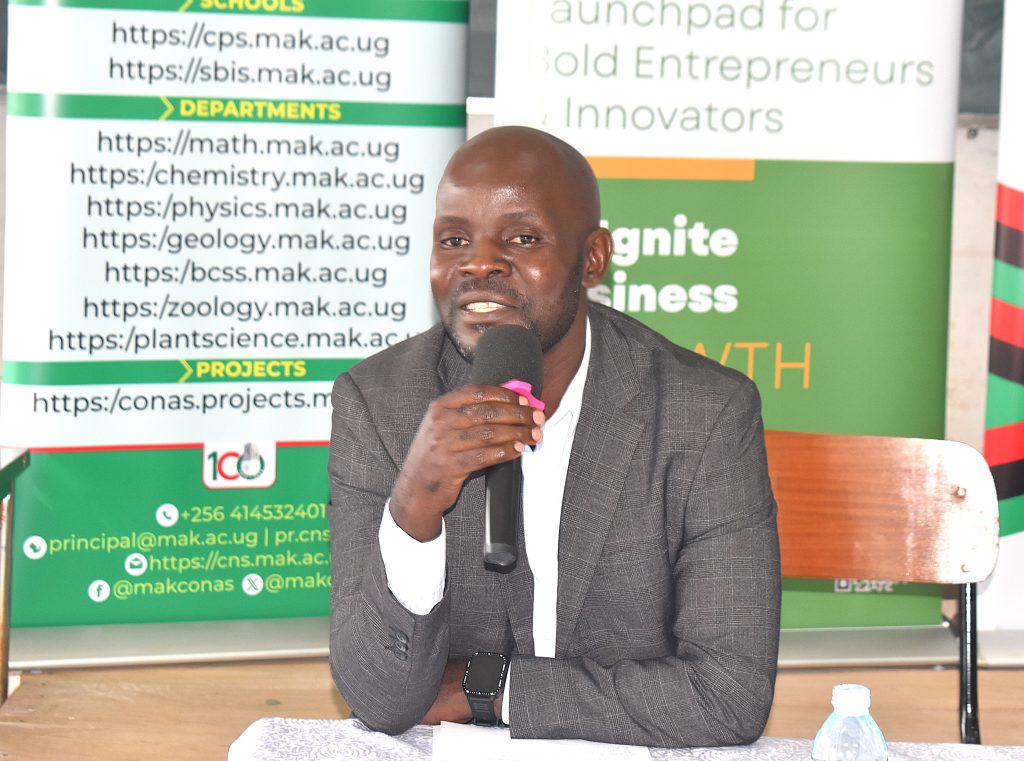
Dr. Mbidde urged the students to invest in nurturing their entrepreneurial skills, encouraging them to proactively develop plans, engage in regular self-assessment, and seek out mentors who can offer guidance and support along their professional journeys. She underscored the importance of spiritual grounding, advising students to cultivate a strong relationship with God as a source of direction and resilience in navigating the complexities of their career paths.
Mr. Basiima Collins from UniPod emphasized the importance of a mind-set shift as graduates navigate their career paths. He urged students to actively participate in networking events and foster an entrepreneurial mind-set, stressing that these actions are essential for personal and professional growth. “By embracing opportunities for networking, you can build valuable connections and open doors to new possibilities. Additionally, cultivating an entrepreneurial mind-set allows you to approach challenges with creativity, resilience, and a proactive attitude, which are crucial qualities for success in today’s dynamic job market.”
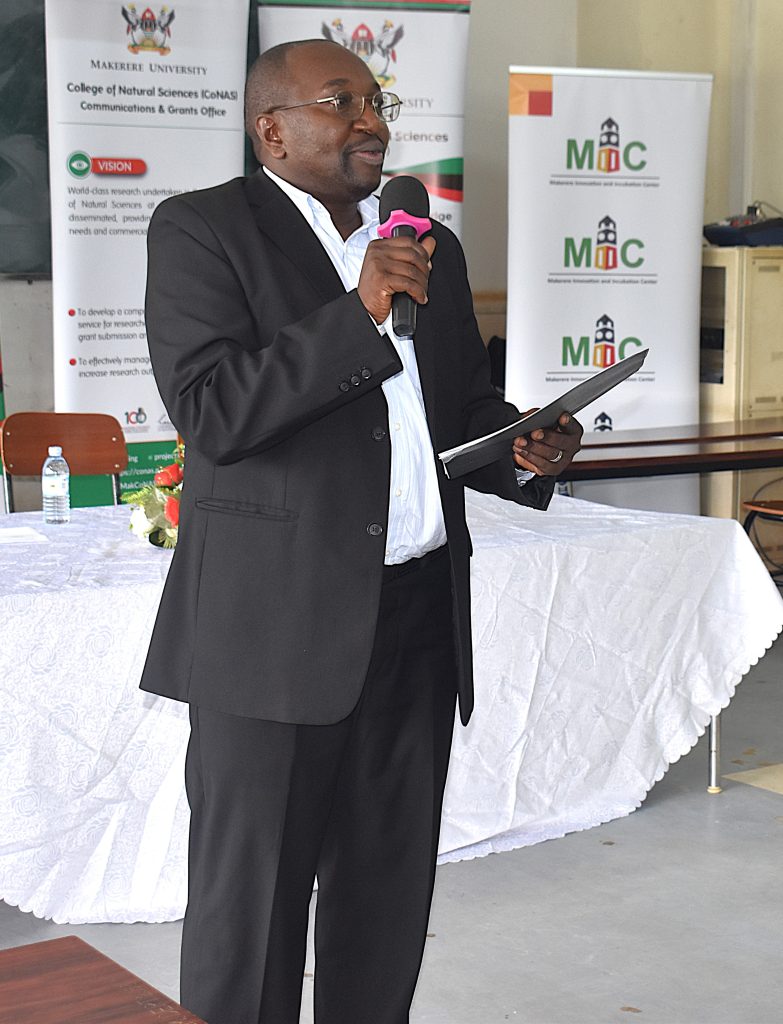
Addressing students on the significance of mental health in the journey of career development, Dr. Alex Behakanira emphasized the need to remain open-minded and adaptable. He noted that although job opportunities may appear scarce, the broader landscape of opportunities remains vast and ever-evolving. Dr. Behakanira encouraged students to strive for relevance not only in their professional environments but also within their homes and communities, underlining the importance of being well-rounded individuals. Echoing this sentiment, Mr. Henry Nsubuga stressed the importance of safeguarding one’s mental well-being throughout their career path. He advised students to cultivate a resilient mind-set and to be intentional about steering clear of situations that may lead to emotional distress or depression.
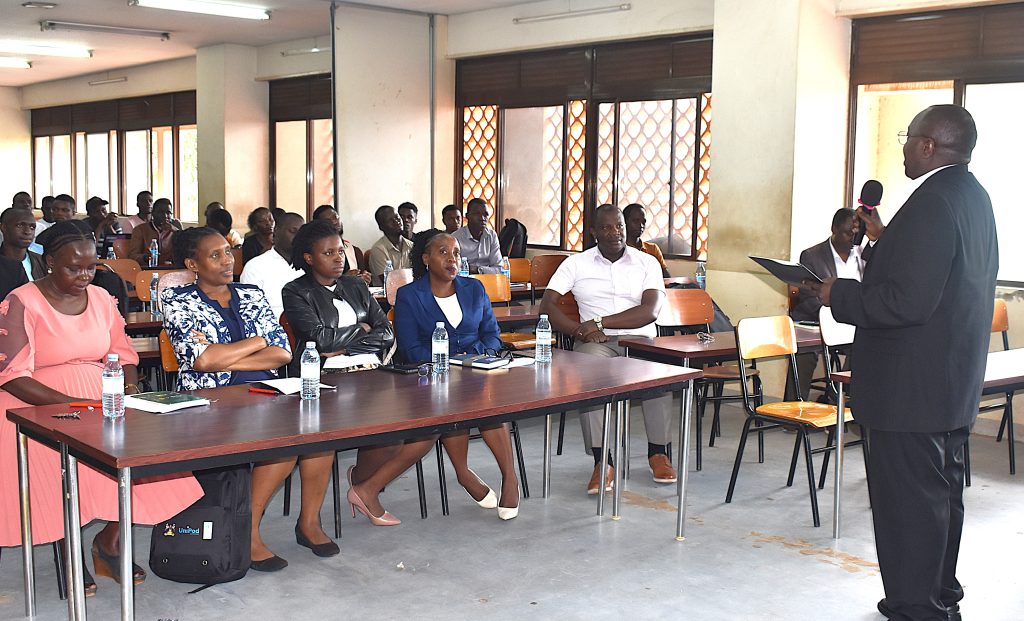
In his remarks, Prof. Juma Kasozi, the Deputy Principal of the College of Natural Sciences (CoNAS) and Head of Academics, expressed his appreciation for the initiative. He commended the effort as a timely and strategic intervention aimed at equipping students with the practical knowledge and emotional resilience necessary to navigate the dynamic and often challenging world of work. Prof. Kasozi emphasized that such initiatives play a crucial role in bridging the gap between academic theory and real-world application. He extended sincere gratitude to the seminar coordinators, praising their foresight and dedication in conceptualizing and organizing the programme.
The Terminal Seminar will be held on an annual basis.
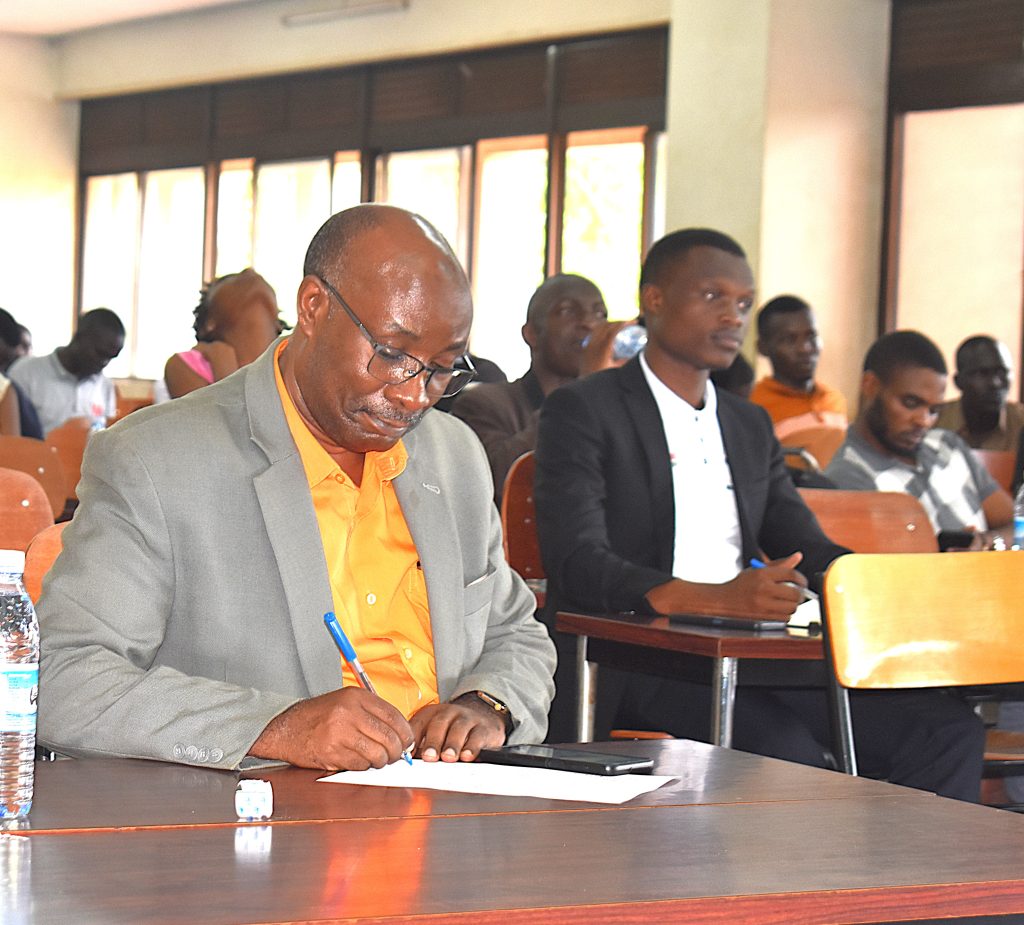
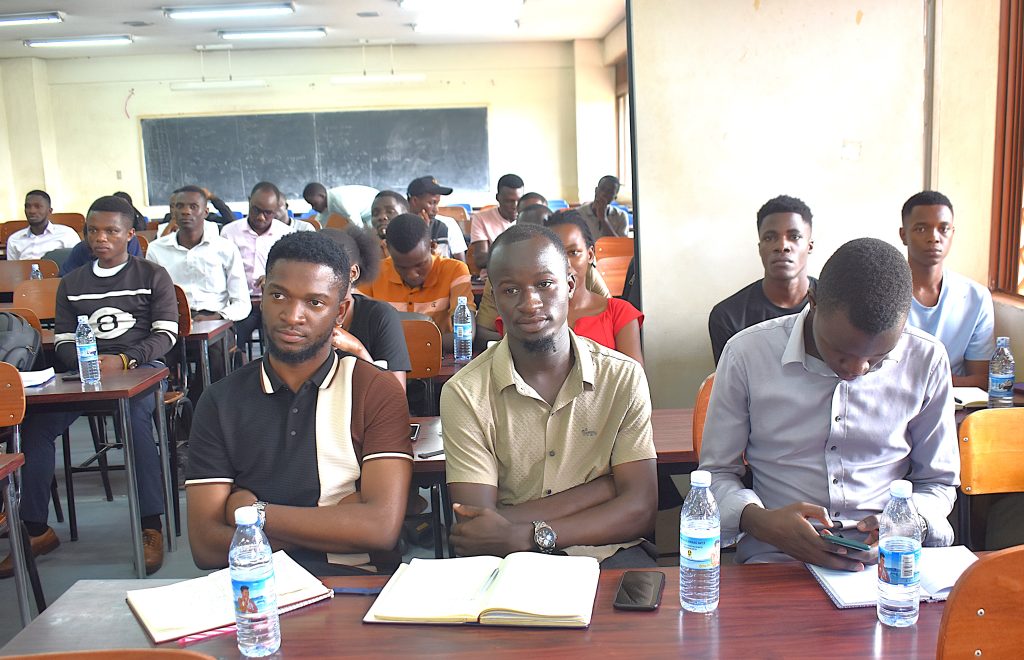
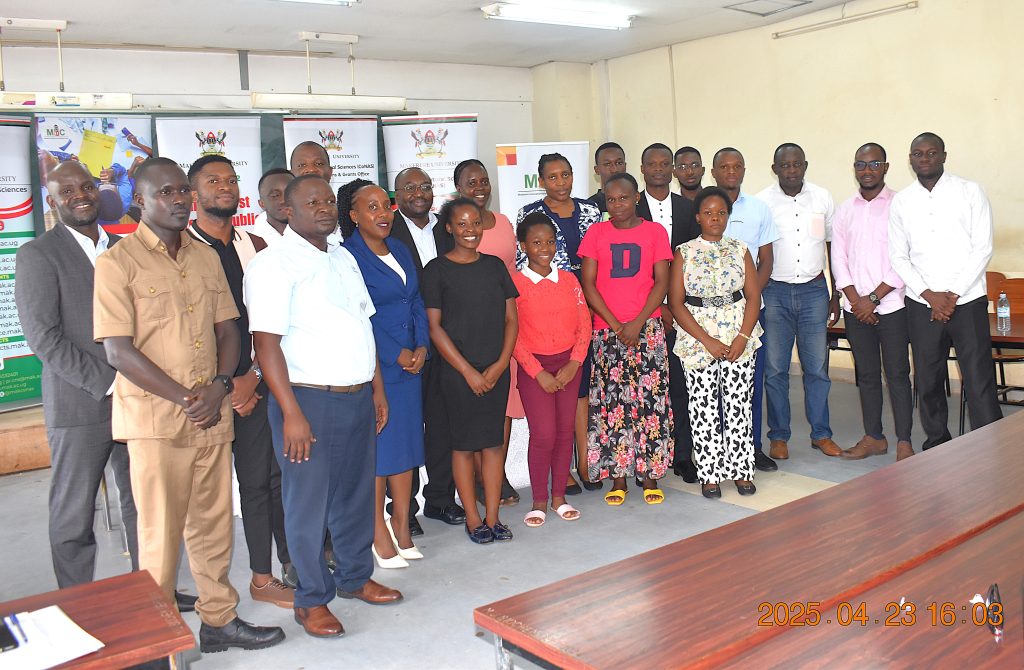
Trending
-

 General2 weeks ago
General2 weeks agoRe-advert: Admission to Undergraduate Programmes 2025/2026
-

 General1 week ago
General1 week agoRe-Advert for Applications for Diploma and Certificate Training
-

 General5 days ago
General5 days agoMakerere University Fees Waiver for 40 First Year Female Students 2025/2026
-

 General2 weeks ago
General2 weeks agoPress Statement on Ranking
-

 Health1 week ago
Health1 week agoCall for Applications: Responsible Conduct of Research (RCR) Training Course
